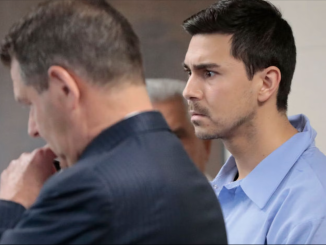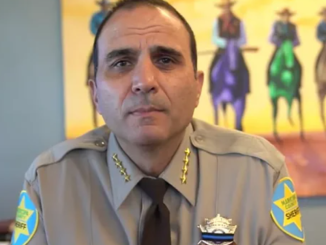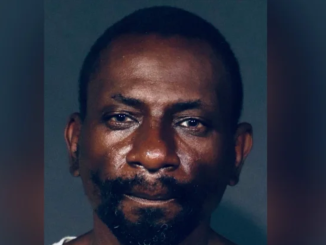
Families of Connecticut crime victims are outraged after 44 murderers had their sentences commuted, accusing the Board of Pardons and Paroles of amending its policy to favor the state’s most violent criminals.
Critics of the commutation surge have argued the spike in sentence reduction “re-victimizes” families who chose to accept plea bargains in order to avoid the emotional and mental toll of a lengthy trial.
Audrey Carlson, who lost her daughter Elizabeth after she was murdered more than two decades ago, joined “Fox & Friends First” Monday to discuss her concerns over the policy and why the commutations are “outrageous.”
And although her daughter’s killer’s request was fortunately denied, she remembered enduring a “tailspin” after hearing the news, calling it “outrageous.”
“Everything resurfaced from 20 years ago,” Carlson told Todd Piro on Monday. “We buried our daughter and the therapy and the years and the years of navigating through grief and trying to basically find our way resurfaced. I couldn’t breathe. I was struggling. Our daughter, our surviving daughter, Leslie, who escaped the house that day, we all went into a tailspin. My husband, my daughter and I, in a tailspin. When we could catch our breath, we realized that we had work to do.”
Last year alone, there were 71 commutations in Connecticut, according to the state board, compared to only six between 2016 and 2021.
According to Fox 61, the board blames the commutation spike on the pandemic. Commutation applications were halted over COVID, and when they resumed in 2021, this led to the massive influx of applicants, they have argued.
Since resuming the process, the board commuted the sentences of 97 criminals, according to the report, and denied almost 300 of the 400 applications received.
The list of denials included Elizabeth’s killer.
But despite the board’s stance, State Sen. Heather Somers, R., accused the board of acting “in the dark” to reduce criminal sentences after the policy shift post-pandemic.
“This is a policy that was done in the dark by the Board of Pardons and Paroles, which is appointed by our Democratic governor here in the state of Connecticut,” Somers said. “They took it upon themselves, or they were given a nudge to revise this policy.”
She noted the rule allows anyone, regardless of the crime, to come before three “unelected” members on the state’s Board of Pardons and Paroles to reduce their sentences.
Criminals convicted of rape, murder, and other heinous acts are permitted to seek commutation, which she warned, is wrong because it is overriding plea deals and judges.
“They are coming in front of this board of three and unknown to us as legislators, and they are shaving decades, not a few years, decades off of these sentences,” she said. “Just last week, this board shaved off 67 years off of someone’s 95-year sentence. It is outrageous. We are committed to making this stop.”
The pair called on Gov. Ned Lamont, D., to take action against the commutations, urging him to halt the process, so legislators can evaluate the implications.
Lamont issued a statement on the concern amid growing calls to overhaul the policy.
“Connecticut remains one of the safest states in the country in large part because of the data-driven approach used to develop and evaluate criminal justice policy and practice,” the statement read. “The commutation process has accelerated rapidly since coming back online mid-2021. Given the substantial progress the Board already has made in hearing commutation cases, it’s time to step back and see how the policy is working.”
“The seriousness of the topic demands a careful approach involving the General Assembly as well as stakeholders, especially victims,” he continued.
The board reportedly consists of members nominated by the governor, and they have sole authority to grant pardons and commute some sentences.
“We feel that Connecticut has turned its back on all the victims and survivors who have taken these plea deals,” Carlson said. “We reluctantly took this 42-year plea deal, largely because if he had gone to trial, it probably would have been 60 years with a lot of wiggle room and a lot of appeals, and to have to dredge that up and be revictimized again and again and again, I’m not sure we could have handled that.”
“The bottom line is no one ever thinks anything bad is ever going to happen to them. It happens to somebody else. We are that someone else,” she continued. “They need to do what’s right and ethical and moral.”
* Article from: Fox News


